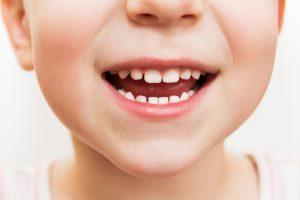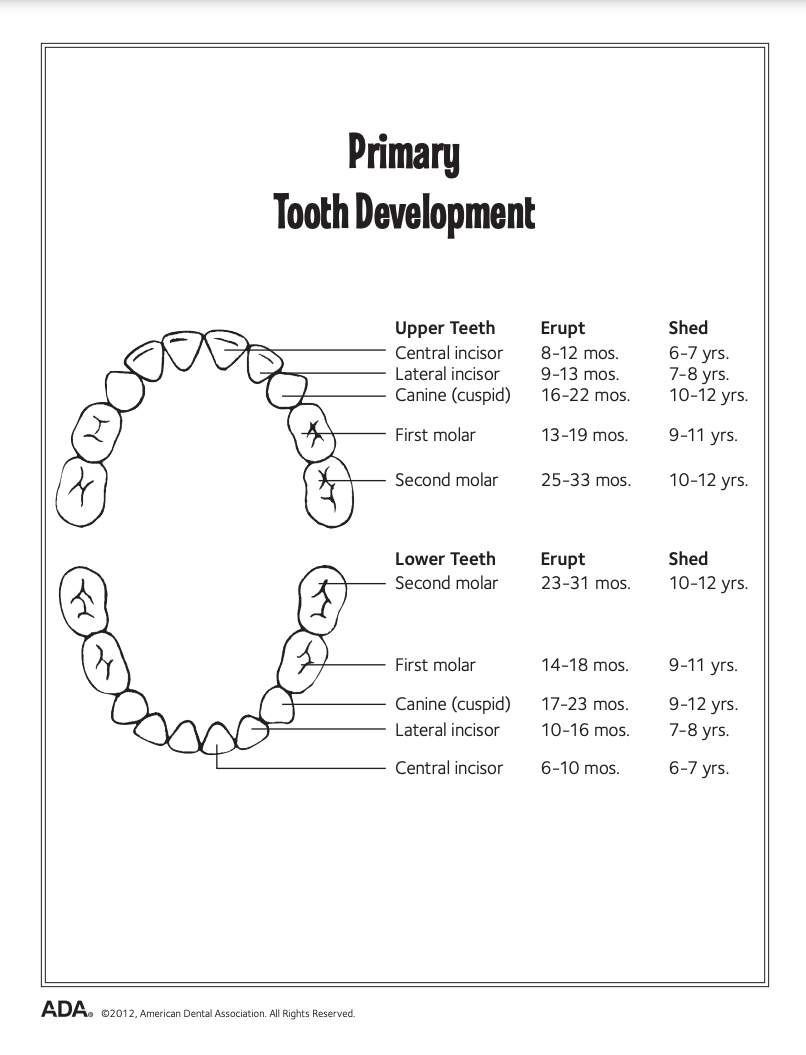Disclosure :: This post was written by Dr. Anita Gouri of Lafayette Pediatric Dentistry.
Why Do Baby Teeth Matter?
“Why fix baby teeth, if they’re just going to fall out anyway?”
A question I hear almost on the daily in my office!
Let’s go over the many reasons baby teeth are important:
The most obvious: young children need baby teeth to chew, and have a good looking smile!
It’s important to treat any cavities early to maintain their function and longevity. If left untreated, the baby teeth lose their integrity and begin to break down, leading potentially to more cost, discomfort, or complexity of treatment.
When your child is learning to speak in their early years, a lack of baby teeth in certain areas for prolonged periods of time can affect the way they pronounce words and sounds.
Many people don’t realize you have baby teeth in your mouth well into the pre-teen years!
Your incisors (front teeth) fall out around ages 5-7, but your posterior teeth (molars) don’t fall out until ages 9-14! So you need to care for baby teeth because they are in your mouth for a long time!
Baby teeth act as placeholders for the permanent teeth.
Let’s say your child has one bad tooth that needs to be pulled—it happens sometimes. If it is removed from the mouth several years ahead of when it’s naturally supposed to fall out, the teeth adjacent to the bad tooth can drift into its space, and potentially block the permanent tooth that is supposed to eventually be there. This leads to poor alignment of the teeth, space loss in the oral cavity, and potential need for extensive orthodontic work (braces).
We pediatric dentists make space maintainers to preserve this space in case this happens, but we would rather fix the tooth, before it gets so bad it needs to be pulled, since the tooth itself is the best place holder!
Like with permanent teeth, baby teeth with cavities can be painful and can get infected.
Studies show that 30% of children aged 6-12 years miss school due to dental-related problems. If cavities are left untreated, they GROW. Each tooth has a nerve and blood supply in its core. If the cavity is allowed to encroach this area, pain and/or infection ensue.
Dental pain is some of the worst kind of pain to experience, because the inflammation and pain emanating from the center of the tooth is completely encased in enamel. Enamel is the hardest tissue in the body, and therefore allows the inflammation no room or “give” to disperse, providing no relief from the pain! The pain can eventually become throbbing and chronic, hurting even when you aren’t chewing or drinking. No one wants to experience this intense discomfort, especially our littles!
Early childhood caries (cavities in the baby teeth) set the stage for having chronic dental problems throughout life, and increasing proneness to getting cavities in young permanent teeth.
 That’s why you can’t just “Ignore the ‘temporary’ teeth” and then get serious about dental care once the permanent teeth come in. Studies show that rampant decay in childhood can be directly correlated with permanent tooth decay.
That’s why you can’t just “Ignore the ‘temporary’ teeth” and then get serious about dental care once the permanent teeth come in. Studies show that rampant decay in childhood can be directly correlated with permanent tooth decay.
Similarly, establishing proper oral hygiene and healthy diets early in infancy set the stage for a healthy set of permanent teeth!
In short, baby teeth are there for many reasons, and should not be neglected.
Establish daily brushing and flossing routines, healthy diets, and periodic checkups with their pediatric dentist early in life. Have any dental problems treated as early as possible. In this way, you can equip your children with the oral health and knowledge they need to have healthy smiles for life!
Lafayette Pediatric Dentistry offers an in-house dental savings plan that many parents have found to be a much better solution to dental insurance. Call the office at (337) 443-9944 for more information!
Website | Facebook | Instagram | Twitter
Other Dental Related Topics that May Be of Interest ::
- Why Does My Child Have White Spots on Their Teeth?
- What if My Kid Freaks Out at the Dentist?
- Tips on Weaning Your Little One From Thumb & Finger Sucking
- Sleep Disordered Breathing: More Common Than You Think!
- Why Take X-Rays Routinely at the Dentist?
- Teething Toddler Woes: Tips and Tricks For Relief
- The Most Common Causes of Cavities
- Four Reasons Moms Should Reconsider Fruit Snacks
- Why Is My Child Grinding Their Teeth At Night?
- The Truth About Tongue and Lip-Ties
- The Most Common Causes Of Discolored Teeth
About the Author
 Dr. Anita Gouri, a pediatric dentist, has been practicing in Lafayette for 10 years and is the owner of Lafayette Pediatric Dentistry. She graduated from LSU School of Dentistry in 2006, receiving honors including Outstanding Achievement in Pediatric Dentistry, Honors in Research, and the Carl A. Baldridge Academic Scholarship. She completed her residency in pediatric dentistry at Children’s National Medical Center in Washington DC in 2008 and became a board certified diplomate of the American Board of Pediatric Dentistry in 2009. In 2010, her research on dental pain assessment was published in Pediatric Dentistry. She also has specialized training in treating babies and children who have tongue and lip ties. She is a member of the Academy of Laser Dentistry, American Academy of Pediatric Dentistry, the Louisiana Dental Association, the Southwestern Society of Pediatric Dentistry, American Dental Association, as well as the C. Edmund Kells and Omicron Kappa Upsilon Dental Honor Societies. Dr. Gouri, her husband, and their two children enjoy travel, Saints football, good food and good friends.
Dr. Anita Gouri, a pediatric dentist, has been practicing in Lafayette for 10 years and is the owner of Lafayette Pediatric Dentistry. She graduated from LSU School of Dentistry in 2006, receiving honors including Outstanding Achievement in Pediatric Dentistry, Honors in Research, and the Carl A. Baldridge Academic Scholarship. She completed her residency in pediatric dentistry at Children’s National Medical Center in Washington DC in 2008 and became a board certified diplomate of the American Board of Pediatric Dentistry in 2009. In 2010, her research on dental pain assessment was published in Pediatric Dentistry. She also has specialized training in treating babies and children who have tongue and lip ties. She is a member of the Academy of Laser Dentistry, American Academy of Pediatric Dentistry, the Louisiana Dental Association, the Southwestern Society of Pediatric Dentistry, American Dental Association, as well as the C. Edmund Kells and Omicron Kappa Upsilon Dental Honor Societies. Dr. Gouri, her husband, and their two children enjoy travel, Saints football, good food and good friends.



















